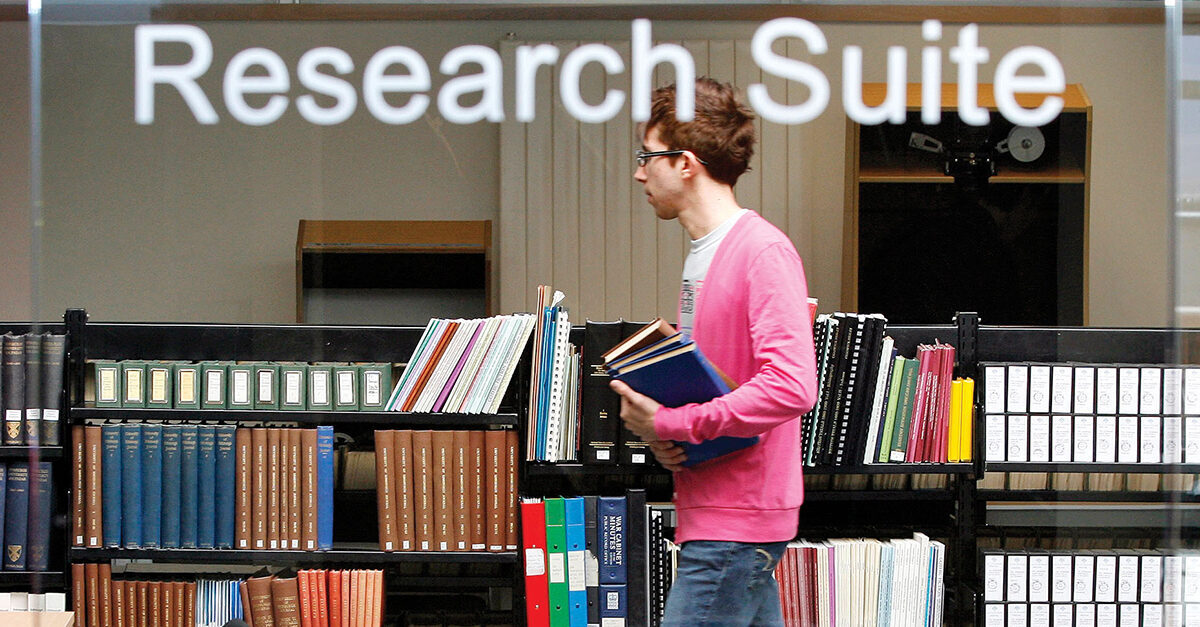How to prevent burnout as a postgraduate student

Embarking on a postgraduate journey is undoubtedly an exciting and intellectually rewarding endeavour, but it does require a significant amount of time, effort and dedication. How can you get the most out of your studies, without experiencing burnout? MSc Intellectual History student Lena offers her thoughts.
Taking the decision to study at a postgraduate level is a big decision so it’s normal to feel overwhelmed and stressed out at times, but in the worst-case scenario – when academia takes over your life a little bit too much, and you cannot seem to catch a breath – it can lead to burnout, adversely affecting your mental and physical wellbeing. To prevent getting to a state like that, I’ve put together a – hopefully – helpful guide with some simple and practical strategies which have helped me safeguard my mental and physical health throughout my academic journey. You should truly enjoy your time at University, rather than just constantly wishing for all the deadlines and stress to finally disappear.
Understanding Burnout

Before delving into the advice on how to prevent burnout, it may be helpful to briefly cover what the phrase ‘burnout’ actually refers to. It’s commonly understood as a state of chronic physical and emotional exhaustion, often accompanied by feelings of cynicism and detachment from work or, in the case of students, from studies. Often, burnout is not the result of a brief stressful period but rather a consequence of prolonged exposure to stressors, overwhelming workloads, and a lack of adequate coping mechanisms. A few common signs that are usually understood to indicate burnout (although these can vary from person to person) include persistent fatigue, decreased productivity, increased irritability, diminished enthusiasm, and withdrawal from social activities.
Managing your Studies
The first area to be tackled when attempting to create a sustainable framework for avoiding burnout during your postgraduate career is probably the most obvious and intuitive – your studies. I’ll will begin this section with something that we’ve all probably heard time and time again in a University and work context – time management. There is a reason why people talk about it so much. Ultimately, it is the tool that will help you stay calm in the first place, no matter how massive the workload may seem.
While an undergraduate degree may have allowed you to be more flexible and do assignments at the last minute, a postgraduate degree is often far more time-consuming. Additionally, you are usually expected to engage far more deeply with the topics you are working on. Frequently your lecturers want to see you really delve into a topic for an essay, which is considerably more difficult to do if you only started looking at the question the night before. So, although it may be a tedious task to do, and you might not want to hear it because you have already heard it a thousand times, before you think about anything else sit yourself down and develop a realistic and efficient time schedule that includes your academic work as well as other personal commitments.
A schedule has helped me to prioritise tasks based on their deadlines and importance and to structure my work days based on three main components – readings for upcoming classes, research for assignments, and writing for assignments – and your schedule may look very different, depending on which programme you do and how your classes and assignments are structured. However, the most important thing is that you create a time management system for yourself. Having a system in place means that you do not have to wake up each morning stressed and panicked at the prospect of all the things you need to do.

One crucial aspect to consider when setting up your daily, weekly, or even monthly schedule is to be honest with yourself regarding whether your short- and long-term goals are realistically achievable. It is probably not ideal to simply put down, ‘Write your essay on Friday’. Seeing this when you first open your physical or digital planner will very likely leave you overwhelmed with trying to figure out what to exactly do that day. When proactively planning your day or week, it may be much more helpful to break down all your larger tasks into smaller, manageable steps and, most importantly, celebrate your accomplishments, no matter how small they may seem, along the way. Did you write one page today? That is already one page closer than yesterday and one step closer to finishing your essay altogether! Please don’t forget to give yourself credit for all the work you do on a daily basis since it is often much more than you think. Being proud of yourself for all the tasks you do, no matter how big or small, will not only make you feel better each day but also help you stay motivated in the long run.
Establishing clear boundaries is another important element when attempting to create an achievable and realistic time schedule. Saying no to things you may not have the time for and would not enjoy enough to warrant compromising other aspects of your academic and personal life is crucial. As much as it may be tempting to ‘do it all,’ it is essential to recognise that attempting to juggle too many things at once can lead to exhaustion and will ultimately compromise not only the quality of academic work you put out, but also the quality of time spent with friends and family outside of your University life.
Lastly, I would like to remind you that during your time in Edinburgh, you should not hesitate to utilise the available support systems. You don’t have to go through everything alone. Making an effort to connect with academic advisors, the student support team at the School of History, Classics, and Archaeology (also known as HCA), and other students can be beneficial for you in many ways. Regular communication with HCA staff and students can provide you with valuable insights and guidance for your academic work, as well as a sense of belonging. It can also help reduce potential feelings of isolation that may be especially strong if you have just recently moved to Edinburgh and have not met many people yet.
Making Self-Care a Priority
As a postgraduate student, it can be quite easy to become completely absorbed in your studies. After all, pursuing a postgraduate degree is expected to push you to your academic limits so that you can potentially join the ranks of those researchers whose work you have always admired. When I first started, I found myself quickly setting aside everything in my life that was not related to my studies so that I could make enough time for reading, researching, and writing. This is only natural, you likely chose to pursue a postgraduate degree because you are incredibly passionate about your field of study, so it is to be expected to want to dedicate all your time and energy to it.
However, if the basics of taking care of yourself physically and mentally start to disappear from your daily routine, your body and your mind will eventually find it increasingly difficult to deal with the workload and the stress postgraduate degrees can bring. On the other hand, if you get the basics right, you will be able to sit at your desk energised and ready to do your best rather than constantly feeling tired and sluggish.
Simple Steps
 Firstly and most obviously, get enough sleep. Sleeping well and enough is essential for your cognitive function (concentration, memory and resilience against stress) and improves your overall wellbeing. Attempt to establish a consistent sleep routine that works for you personally. If you have never been a morning person, there is no reason (other than a 9am class) for you to force yourself to be up at dawn every day to be productive. If you work better in the evenings, prioritise the evenings as your study time and leave the rest of the day for lighter tasks. The critical thing in this instance is consistency. Find a sleeping routine that works for you and your body and leaves you feeling energised throughout the week.
Firstly and most obviously, get enough sleep. Sleeping well and enough is essential for your cognitive function (concentration, memory and resilience against stress) and improves your overall wellbeing. Attempt to establish a consistent sleep routine that works for you personally. If you have never been a morning person, there is no reason (other than a 9am class) for you to force yourself to be up at dawn every day to be productive. If you work better in the evenings, prioritise the evenings as your study time and leave the rest of the day for lighter tasks. The critical thing in this instance is consistency. Find a sleeping routine that works for you and your body and leaves you feeling energised throughout the week.
Eat well and regularly. Cooking may not be the first thing on your agenda, especially during deadline season, but putting a little effort into your nutrition and limiting the takeaways will make you feel much better physically, positively impacting your ability to focus on work. Also, consider finding a way of moving your body every once in a while, even if it is just a short walk through the Meadows to break up those long library days. If you need an incentive, grab a coffee or a hot chocolate with a friend to get you outside. Even though Edinburgh is not always blessed with the sunniest weather, when the sun does come through, your body will be thanking you for getting some fresh air and a bit of Vitamin D.
Consider trying out some form of mindfulness/relaxation techniques to slow you down during a hectic university day. I will be the first to admit that I have always struggled to understand how people could sit still when the to-do list seemed endless. I was convinced that even sparing 10 minutes for meditation or some light yoga would rob me of valuable time that I could spend being productive. However, over time, I have started to recognise that when you feel overwhelmed with work, it is not always the most helpful to just keep going but rather to stop for a second to breathe and gather yourself again. It ended up helping me immensely to take control over the feelings of panic and stress that often felt not controllable at all. Give a mindfulness activity of your choice a go and see how you feel after. It never hurts to try new things, and it may help you to ground yourself a bit on those days when it all becomes a little bit too overwhelming.
Lastly and most importantly, don’t forget to have fun! You are obviously in Edinburgh to study and challenge yourself academically, but don’t completely neglect your hobbies and those activities that you know bring you joy and relaxation. Ultimately, engaging in non-academic activities, whether as part of a society or individually, will undoubtedly provide you with a necessary break from the demands of postgraduate life and ultimately help you achieve a better work-life balance. And it can be anything! Maybe try doing something that you loved to do as a child, such as painting and crafting, or try something entirely new to challenge yourself. Whatever it is, please do not let postgraduate studies keep you from pursuing your hobbies; if anything, it will help your academic performance if you are well-balanced and happy with what you do every day.
The are some of the strategies which have helped me personally with my wellbeing throughout my studies thus far. However, don’t forget that if you feel you need help you can reach out to the student support team, who can help you and direct you to appropriate support services if necessary.



